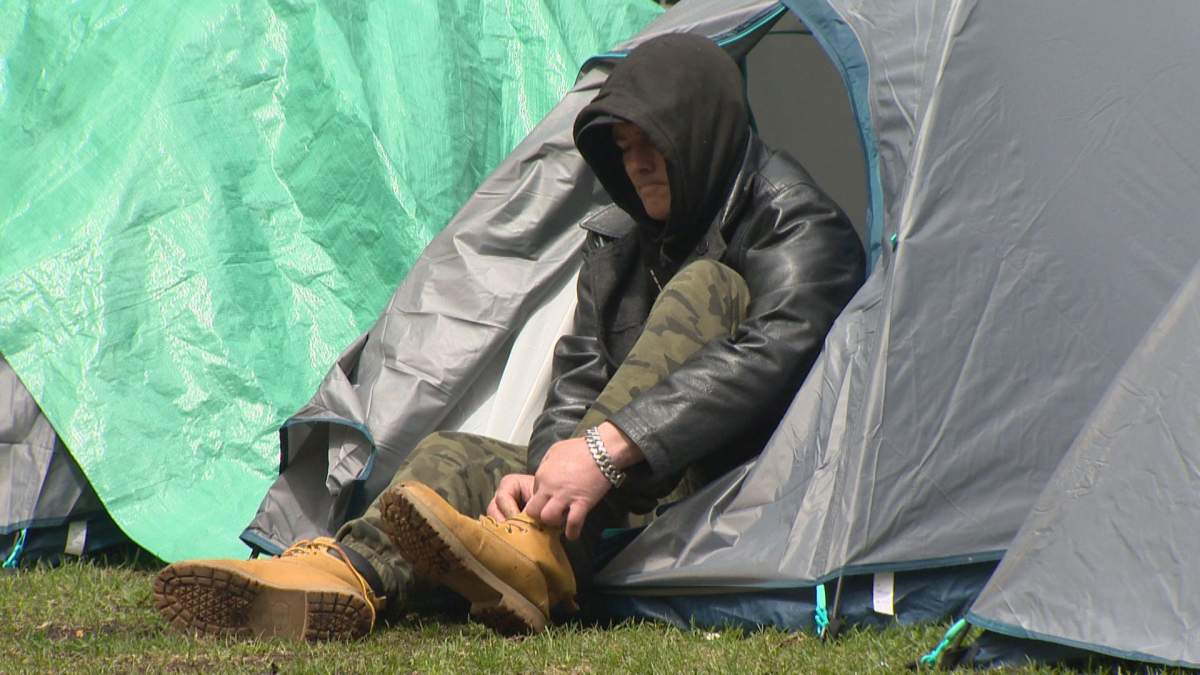Hospital data shows longer and more expensive stays for patients experiencing homelessness across the country.

Nearly 30,000 people last year were homeless when they were admitted to a hospital, according to the Canadian Institute for Health Information (CIHI). Due to the complexity of their illnesses in general, stays were an average of 15.4 days, twice as long as the national average. Roughly 3,500 or 12 per cent of homeless patients required a hospital stay of more than a month.
“To put in further perspective, the average life expectancy in Canada a decade ago was 79 in men, 81 in women. But in the homeless population, it was 47 in men and 48 in women,” says Dr. Cheryl Forchuk, assistant scientific director at Lawson Health Research Institute and co-author of the study. “That’s a profound difference.”
The new analysis used a database from CIHI to get a detailed look at Canadian hospitals. A mandatory record-keeping code, Z59.0, is used to identify and improve services for patients experiencing homelessness. CIHI gets health information from every hospital in Canada and has recently included a factor called ‘homelessness.’
“We spoke with about 30,000 people that were known to be homeless and admitted to our hospitals within a year,” Forchuk says. “The fact that when they do come into hospital, they’re sicker. It takes them a lot longer to recover than everyone else with the same illness.”

Get weekly health news
The intention of this data collection is to develop more accurate sources of data related to homelessness to ensure the proper supports and services are available. Forchuk notes that the longer an individual requires a hospital stay, the longer they are out of work over that time and the more likely it is for these marginalized populations with complex medical needs to be evicted.
- Head-Smashed-In Buffalo Jump heritage site enjoys boost after shout out on ‘The Pitt’
- What is Nipah virus? What to know about the disease as India faces outbreak
- Pizza Pops contaminated with E. coli tied to 7 hospitalizations, data shows
- Pizza Pops E. coli recall grows as roughly a dozen products now hit
Forchuk highlights how housing is connected to health and well-being, and how it directly influences health and homelessness initiatives. Affordable housing is the intervention the study says will prevent the severity of the illnesses the homeless population experiences.
“We try to, for example, manage our health through good nutrition. Well, how do you maintain good nutrition when you’re homeless? Many people I talk to have one meal a day. How do you manage being constantly exposed to the elements or the lack of proper sleep?” Forchuk says. “It doesn’t matter if you’re in a shelter, couch-surfing or in an encampment, your sleep quality is going to be affected. These are all things that help our general health status.”
According to CIHI, the main reasons homeless individuals required hospitalization were substance use disorders, equalling around 18 per cent of stays; schizophrenia spectrum and other psychotic disorders, totalling 11 per cent; and cellulitis, a bacterial infection often seen on the legs, resulting in around seven per cent.
“It doesn’t matter what the homeless situation you’re looking at, and with our algorithm we’ve looked at so many different issues,” Forchuk says. “People who are experiencing homelessness are always disadvantaged.”
Ninety-three per cent of patients experiencing homelessness were admitted to the hospital after an emergency department visit. On average, the cost of a stay was $16,800 due to the complexity of the health concerns, as opposed to $7,800 for housed individuals.
“Sometimes people say, ‘Well, we can’t afford to increase our public housing,’ which is far cheaper, by the way, than shelters. You know, having someone in a shelter bed versus actually getting them a home,” Forchuk says. “But this is kind of like, ‘Pay me now or pay me later.’ By not providing proper housing, it’s actually going to cost more because of various problems, including the much more extensive health-care problems.”
Patients experiencing homelessness typically do not have access to family doctor care, and therefore rely on the hospital for medical treatment. Having the appropriate medical teams in the community, or services like Ark Aid or Intercommunity Health Centre in London, Ont., can prevent emergency department visits in many cases.
“Hospital and service utilization data has been essential to understanding emergency department patterns for those living without stable housing in our community,” says Brad Campbell, corporate hospital administrative executive at LHSC. “Through collaborations like our partnership with London Cares, we’ve leveraged data to help individuals in our community access supportive housing and comprehensive 24/7 health and social support services.”
Campbell notes this work aligns with priorities expressed by the Ontario health-care sector. It increases collaboration across sectors and removes barriers to care by allowing for strong inter-agency communication to support increased capacity and access to health care.












Comments